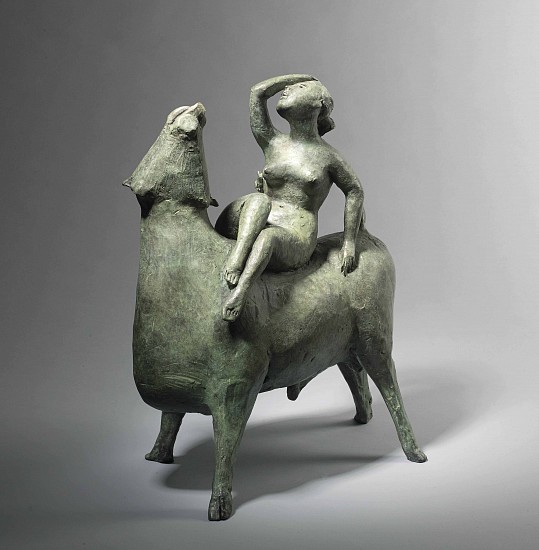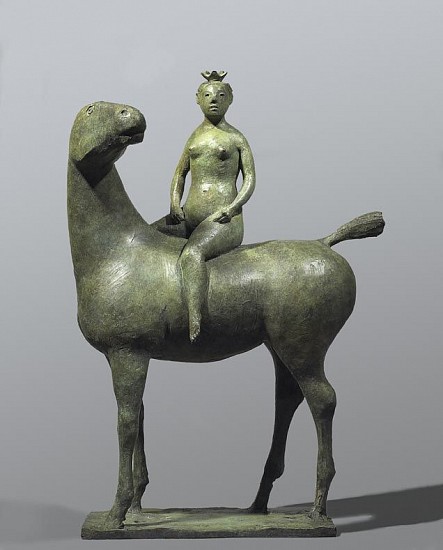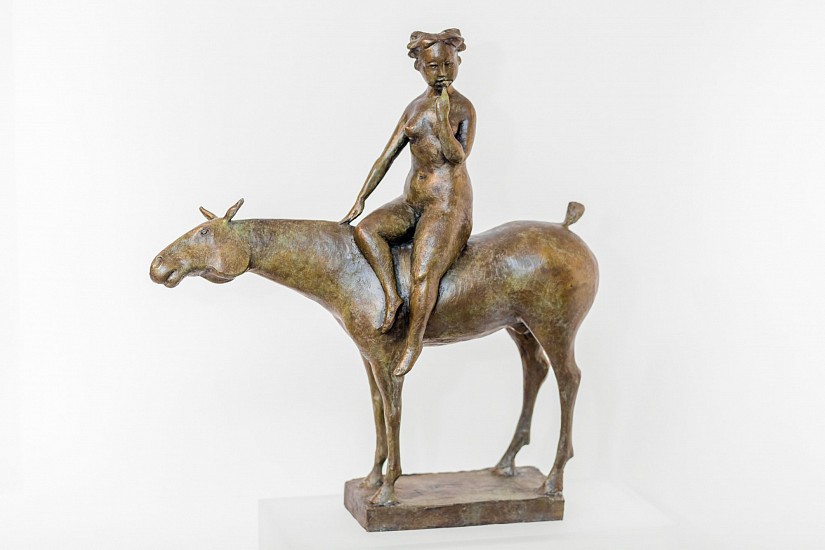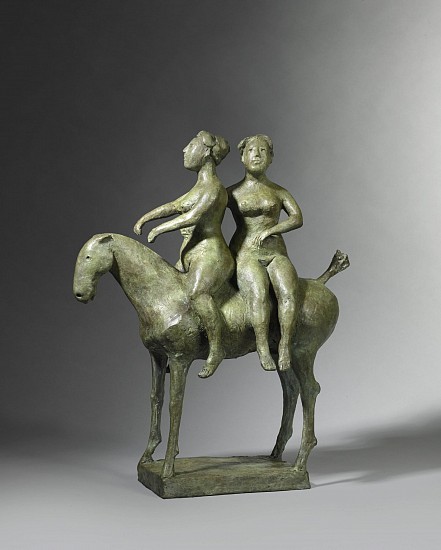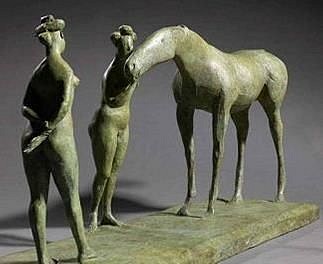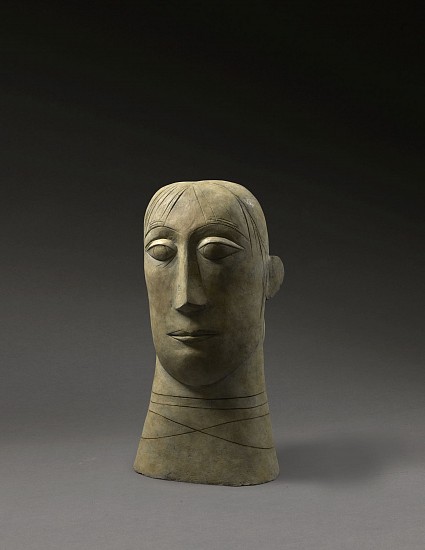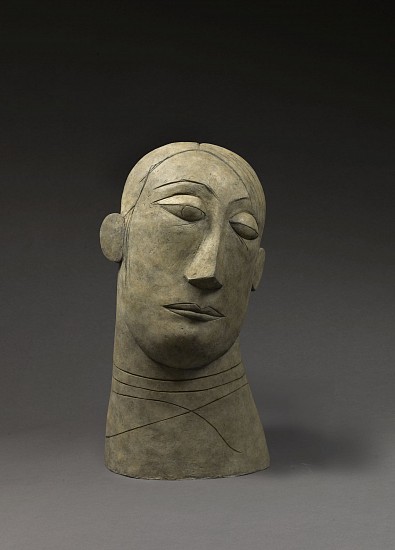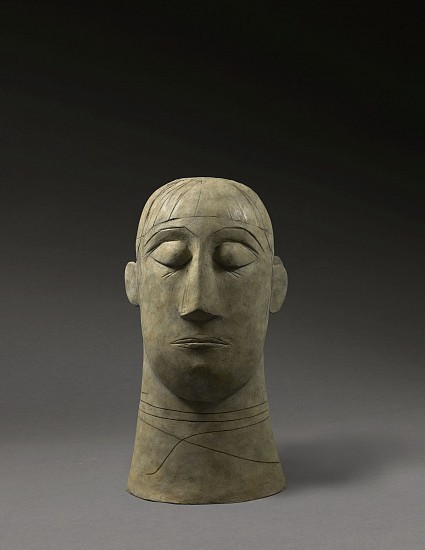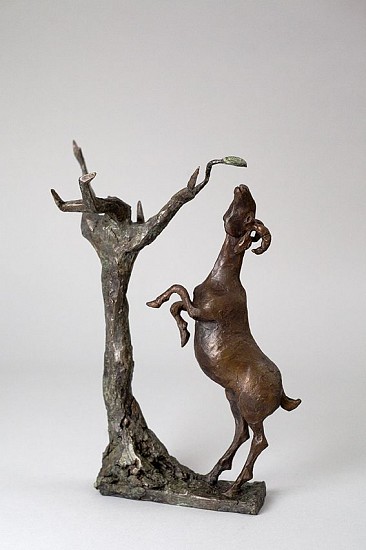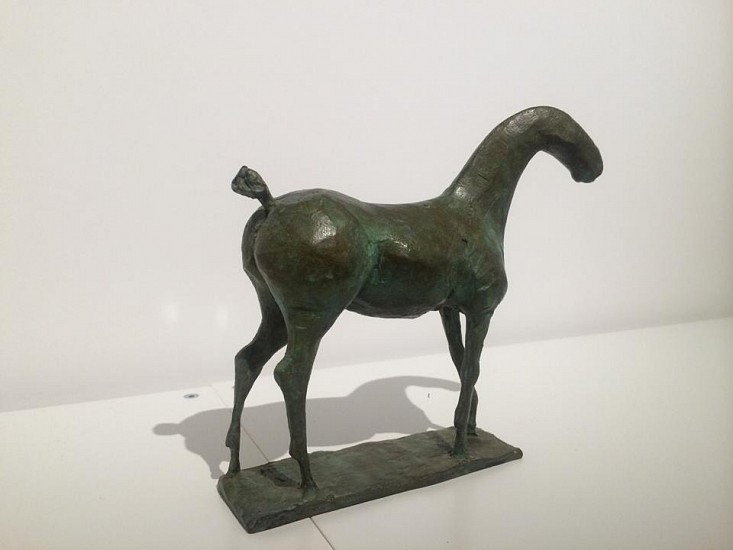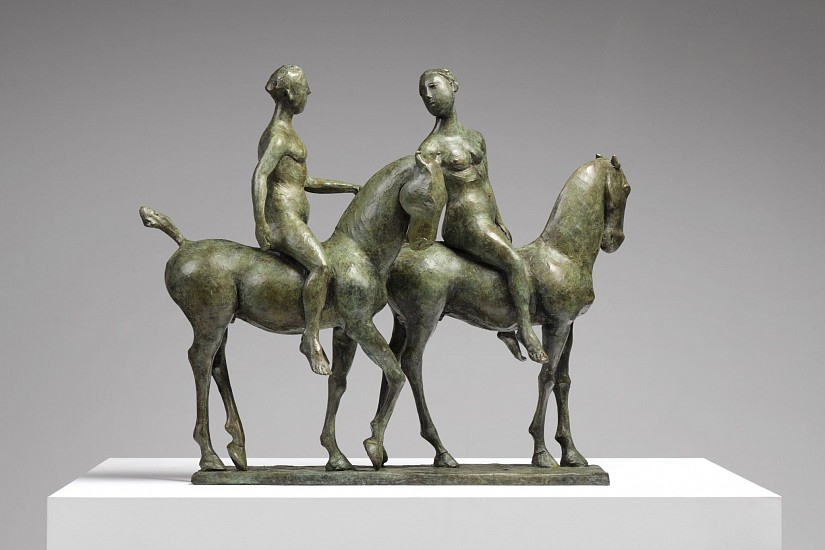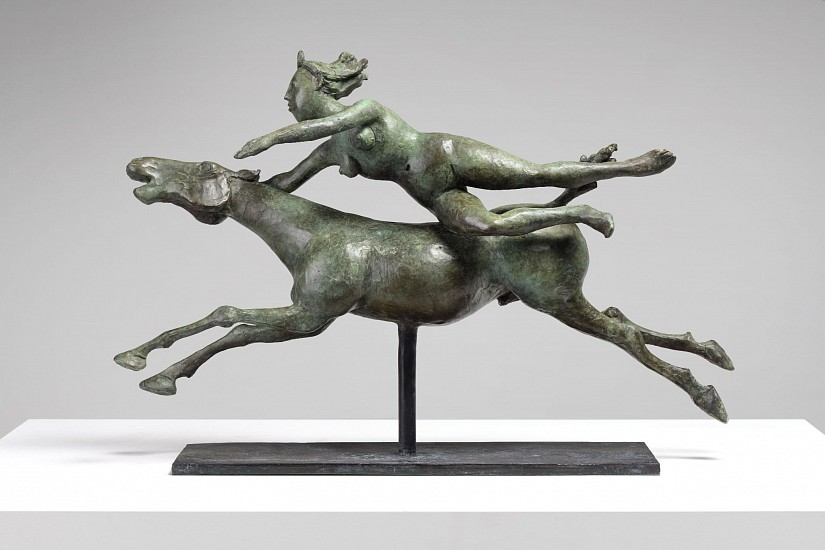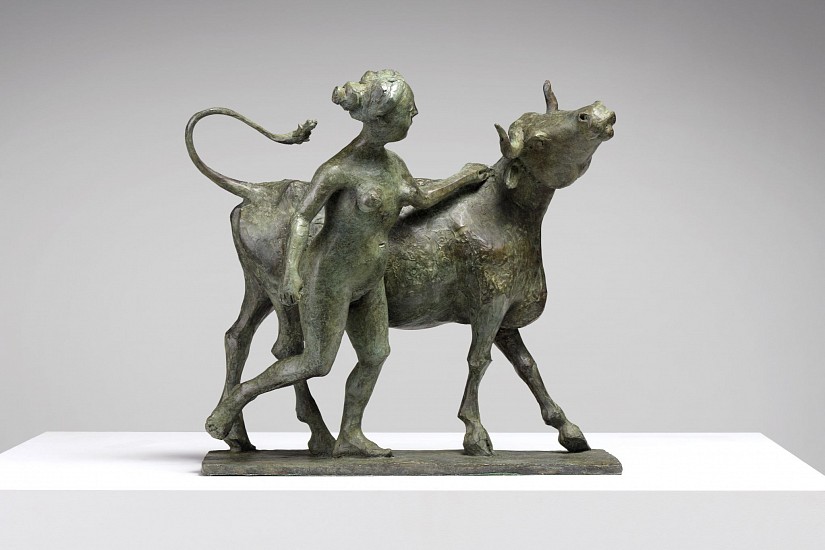OLIVIA MUSGRAVE
Olivia Musgrave was born in Dublin to an Irish father and Greek mother. Her work is taken both from life and from the imagination where she draws inspiration from Greek mythology, as well as influences from 20th Century Italian sculptors most notably Marino Marini.
This trio of sculptures are Musgrave’s take on the three goddesses of fate who personify the inescapable destiny of humankind. According to Greek mythology, the Fates assigned to every person his or her fate.
- Clotho was the "the spinner," who spun the thread of life
- Lachesis (la·kuh·suhs) was the “apportioner of lots” who measured it
- Atropos was the goddess who cut it short.
Reminiscent of the monolithic human heads carved by the Rapa Nui people on Easter Island, Musgrave’s Fates have a sense of timelessness and peacefulness - indeed a calm resignation to their inescapable fate.
Olivia Musgrave was born in Dublin to an Irish father and Greek mother. Her work is taken both from life and from the imagination where she draws inspiration from Greek mythology, as well as influences from 20th Century Italian sculptors most notably Marino Marini.
This trio of sculptures are Musgrave’s take on the three goddesses of fate who personify the inescapable destiny of humankind. According to Greek mythology, the Fates assigned to every person his or her fate.
- Clotho was the "the spinner," who spun the thread of life
- Lachesis (la·kuh·suhs) was the “apportioner of lots” who measured it
- Atropos was the goddess who cut it short.
Reminiscent of the monolithic human heads carved by the Rapa Nui people on Easter Island, Musgrave’s Fates have a sense of timelessness and peacefulness - indeed a calm resignation to their inescapable fate.
Olivia Musgrave was born in Dublin to an Irish father and Greek mother. Her work is taken both from life and from the imagination where she draws inspiration from Greek mythology, as well as influences from 20th Century Italian sculptors most notably Marino Marini.
This trio of sculptures are Musgrave’s take on the three goddesses of fate who personify the inescapable destiny of humankind. According to Greek mythology, the Fates assigned to every person his or her fate.
- Clotho was the "the spinner," who spun the thread of life
- Lachesis (la·kuh·suhs) was the “apportioner of lots” who measured it
- Atropos was the goddess who cut it short.
Reminiscent of the monolithic human heads carved by the Rapa Nui people on Easter Island, Musgrave’s Fates have a sense of timelessness and peacefulness - indeed a calm resignation to their inescapable fate.














